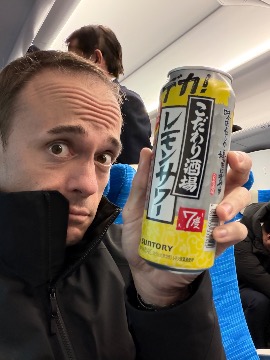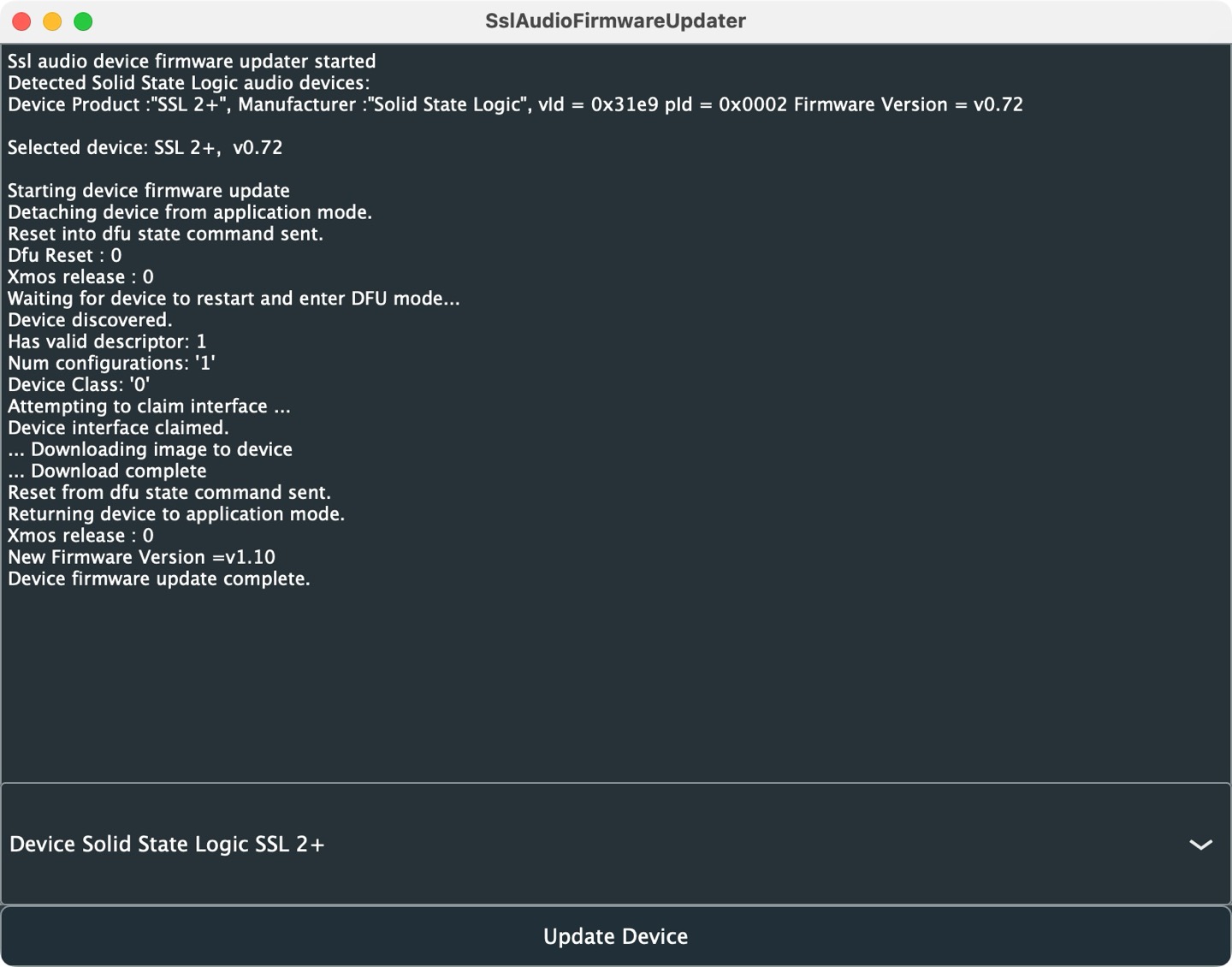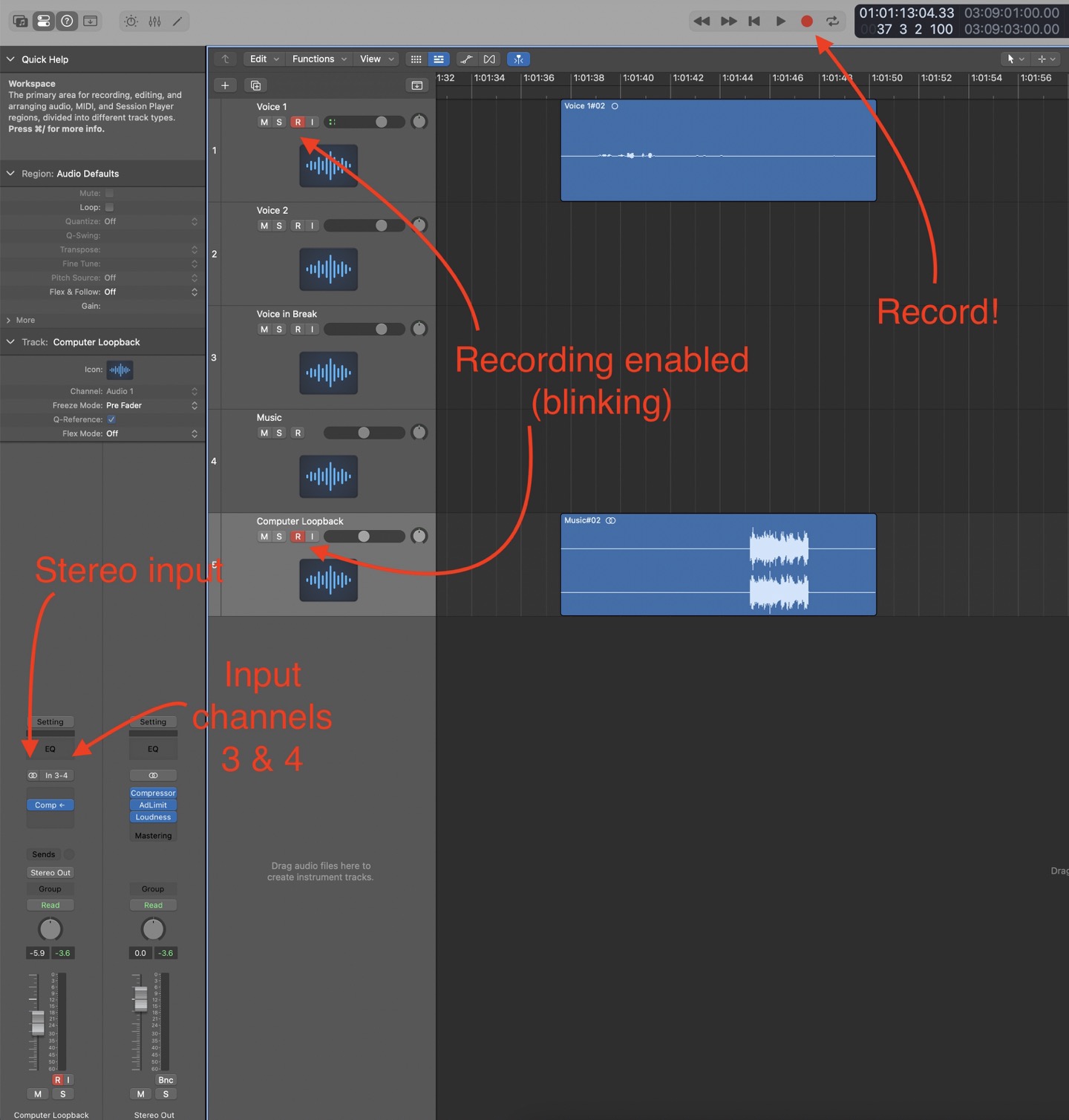
TIL you can force a browser to print backgrounds of certain elements with CSS print-color-adjust: exact;
Can't believe it Just Worked developer.mozilla.org/en-US/docs/Web/CSS/print-color-adjust




TIL you can force a browser to print backgrounds of certain elements with CSS print-color-adjust: exact;
Can't believe it Just Worked developer.mozilla.org/en-US/docs/Web/CSS/print-color-adjust
From a new Apple support document explaining what they train from the open web:
Apple applies filters prior to training our models to remove profane and other low-quality website content.
Well, shit.

So long as you promise to vote for "Standard (gem)" as your preferred quality tool, I encourage you to take this year's Ruby on Rails community survey! railsdeveloper.com/survey/
I use an SSL2+ interface to connect my XLR microphone to my Mac via USB-C when I record Breaking Change. When it launched, the SSL2 and SSL2+ interfaces could monitor your computer audio (as in, pipe it into the headphones you had plugged into it, which you would need if you were recording during a discussion with other people), but there was no way to capture that audio. Capturing computer audio is something you might want to do if you had a Stream Deck or mix board configured to play certain sounds when you hit certain buttons during a stream or other audio production. And up until the day you stumbled upon this blog post, you'd need a software solution like Audio Hijack to accomplish that.
Today, that all changes!
Last year, Solid State Logic released v1.2 firmware update for the SSL2 and SSL2+ to add official loopback support. (At the time of this writing, the current version is 1.3.)
Impressively, the firmware update process couldn't have been easier. Even though the custom UI looks a bit janky, it only required one button press to run and it was all over in about 30 seconds:

Once installed, I had no idea what to do. It appears nobody updated the device's documentation to explain how to actually record looped back audio. I'm brand new to audio engineering (and reluctant to get too deep into it), so it's a small miracle I figured the following out on my own without too much hassle:
Here's what that all looks like for me:

Previously, I've been recording the podcast with QuickTime Player, but I'll have to give that up and start recording in Logic (or another DAW) capable of separating multiple channels streaming in from a single input and recording them to separate tracks. Even if you could get all channels recording through a single channel in another app, you probably wouldn't like the result: voices recorded by microphones require significant processing—processing you'd never want to run computer audio through.
Anyway, hopefully this post helps somebody else figure this little secret out. Nothing but love for Rogue Amoeba, but I sure am glad I don't need to add Audio Hijack to my ever-increasing stack of audio tools to get my podcast out the door!
Yesterday, Gruber broke what, in my opinion, is the most important news story regarding Apple Vision Pro since its launch in February. Emphasis mine:
VisionOS 2 is not getting any Apple Intelligence features, despite the fact that the Vision Pro has an M2 chip. One reason is that VisionOS remains a dripping-wet new platform — Apple is still busy building the fundamentals, like rearranging and organizing apps in the Home view. VisionOS 2 isn't even getting features like Math Notes, which, as I mentioned above, isn't even under the Apple Intelligence umbrella. But another reason is that, according to well-informed little birdies, Vision Pro is already making significant use of the M2's Neural Engine to supplement the R1 chip for real-time processing purposes — occlusion and object detection, things like that. With M-series-equipped Macs and iPads, the Neural Engine is basically sitting there, fully available for Apple Intelligence features. With the Vision Pro, it's already being used.
Not being able to run Apple Intelligence would be a devastating blow to any role Vision Pro might serve as Apple's halo car—an expensive gadget most people won't (and shouldn't) buy, but which plays an aspirational role in the lineup and demonstrates their technology and design prowess.
Now, couple this with rumors that work on Vision Pro 2 has been suspended, and it starts to look like we won't see any Apple Intelligence features on the visionOS platform until late 2026 at the earliest. How dated and limited will Apple Vision Pro seem in late 2026 if most new features coming to Apple's other platforms—including, one imagines, updated Watch, Apple TV, and HomePod hardware—don't find their way to Vision Pro, putting its user experience further and further behind?
At launch, I heard a lot of people jokingly refer to Vision Pro as, "an iPad strapped to your face." Recently, as it's become clear most people are using it to watch TV and for Mac screen sharing, Marco Arment said it was more like a mere Apple TV strapped to your face. But if the hardware really can't support Apple Intelligence and isn't going to be updated for several years, how long before Vision Pro feels like an original HomePod strapped to your face?
I hate when the algorithm nails me.
Since starting Breaking Change earlier this year, I've wanted to start publishing stock-video-laden clips of my favorite little rants and flourishes. The trouble is, video is a huge time sink. At least for me, relative to the other things I do. So I pulled out a timer and ran an experiment to see if I could turn around a ~3 minute clip in under an hour.
And I succeeded! I think with some template setup work, I could get it down to even less time. Hopefully this means more video shenanigans in the future.

My friend Eric is a painter. Here's a quick video showing of his process to produce a commissioned painting of Mr. Toad – impressive! youtube.com/watch?v=-jBN5ykqutY
Learning Tailwind was the first time I've felt like I had a chance in hell of expressing myself visually with precision and maintainability on the web. I'm a fan. If your life currently involves CSS and you haven't tried Tailwind, you should spend a few days with it and get over the initial learning curve.
One thing I like about Tailwind is that it's so extensible. It ships with utility classes for dealing with screen sizes to support responsive designs, but out-of-the-box it doesn't include any vertical screen sizes. This isn't surprising as they're usually not necessary.
But, have you ever tried to make your webapp work when a phone is held sideways? When you might literally only have 330 pixels of height after accounting for the browser's toolbar? If you have, you'll appreciate why you might want to make your design respond differently to extremely short screen heights.
Figuring out how to add this in Tailwind took less time than writing the above
paragraph. Here's all I added to my tailwind.config.js:
module.exports = {
theme: {
extend: {
screens: {
short: { raw: '(max-height: 400px)' },
tall: { raw: '(min-height: 401px and max-height: 600px)' },
grande: { raw: '(min-height: 601px and max-height: 800px)' },
venti: { raw: '(min-height: 801px)' }
}
}
}
}
And now I can accomplish my goal of hiding elements on very short screens or otherwise compressing the UI. Here's me hiding a logo:
<img class="w-6 short:hidden" src="/logo.png">
Unfortunately, because of this open
issue, defining any
screens with raw will inadvertently break variants like max-sm:, which is
bad. So in the meantime, a workaround would be to define those yourself. Here's
what that would look like:
const defaultTheme = require('tailwindcss/defaultTheme')
module.exports = {
theme: {
extend: {
screens: {
short: { raw: '(max-height: 400px)' },
tall: { raw: '(min-height: 401px and max-height: 600px)' },
grande: { raw: '(min-height: 601px and max-height: 800px)' },
venti: { raw: '(min-height: 801px)' },
// Manually generate max-<size> classes due to this bug https://github.com/tailwindlabs/tailwindcss/issues/13022
'max-sm': { raw: `not all and (min-width: ${defaultTheme.screens.sm})` },
'max-md': { raw: `not all and (min-width: ${defaultTheme.screens.md})` },
'max-lg': { raw: `not all and (min-width: ${defaultTheme.screens.lg})` },
'max-xl': { raw: `not all and (min-width: ${defaultTheme.screens.xl})` },
'max-2xl': { raw: `not all and (min-width: ${defaultTheme.screens['2xl']})` },
}
}
}
}
Okay, yeah, so this was less of a slam dunk than I initially suggested, but I'm still pretty happy with it!
WWDC came and went and now we're all just left to ponder what life will be like under the thumb of our new AI overlords (and underlords). But at least for now, humans are still allowed to produce podcasts on their own, which means we can safely opine about the fresh hell we're all hard at work creating.
I finally got a chance to get to some mailbag questions in this episode! If you want to be a part of the ✨magic🪄, shoot me an e-mail to podcast@searls.co. I won't read your last name on air, unless I accidentally do. Promise!
Here are some links to stuff from this episode:

Now that I'm syndicating to Threads via my new feed2thread gem, I've updated my
POSSE Pulse to explain all the site's automations. Seven so far!
justin.searls.co/posse

Just published feed2thread, a Ruby gem that reads your site's feed and posts each entry to Threads, using the newly-released Threads API. Can run in Docker, similar to feed2toot for Mastodon github.com/searls/feed2thread
Last week, when David declared that system tests have failed, my main reaction was: "well, yeah." UI tests are brittle, and if you write more than a handful, the cost to maintain them can quickly eclipse any value they bring in terms of confidence your app is working.
But then I had a second reaction, "come to think of it, I wrote a smoke test of a complex UI that relies heavily on Turbo and it seems to fail all the damn time." Turbo's whole cloth replacement of large sections of the DOM seemed to be causing numerous timing issues in my system tests, wherein elements would frequently become stale as soon as Capybara (under Selenium) could find them.
Finally, I had a third reaction, "I've been sick of Selenium's bullshit for over 14 years. I wonder if I can dump it without rewriting my tests?" So I went looking for a Capybara adapter for the seemingly much-more-solid Playwright.
And—as you might be able to guess by the fact I bothered to write a blog post—I found one such adapter! And it works! And things are better now!
So here's my full guide on how to swap Selenium for Playwright in your Rails system tests:

This post is trending but it's completely wrongheaded and misunderstands why test doubles were invented in the first place.
I'd explain why, but it's probably not worth my time. You've figured it out at this point or you haven't amazingcto.com/mocking-is-an-antipattern-how-to-test-without-mocking/
I was excited to be hosted by the Changelog folks for a recap discussion following Apple's WWDC keynote on Monday. If you listened to my WWDC spoiler cast, you might like this after-action report.
Changelog & Friends 48: Putting the Apple in AI – Listen on Changelog.com
A few errata and missed pitches:
I hope you'll listen! I like Jerod and Adam a lot. The whole Changelog family of podcasts is fantastic. You can tell they're smart because they have yet to invite Breaking Change to join the network.

Was thinking last night how much I loved Fallout 2 when it first released and how much of the magic was lost when Bethesda moved it to a high-budget FPS format.
Given all the Fallout buzz right now and the nature of Game Pass, Microsoft should find a studio to make a lower-budget Fallout 2.5 in the style of the original games but for modern platforms. Could be great.

Microsoft's new line of computers to be rebranded as "Copilot plus or minus" PCs
after indefinitely shelving Recall feature
blogs.windows.com/windowsexperience/2024/06/07/update-on-the-recall-preview-feature-for-copilot-pcs/